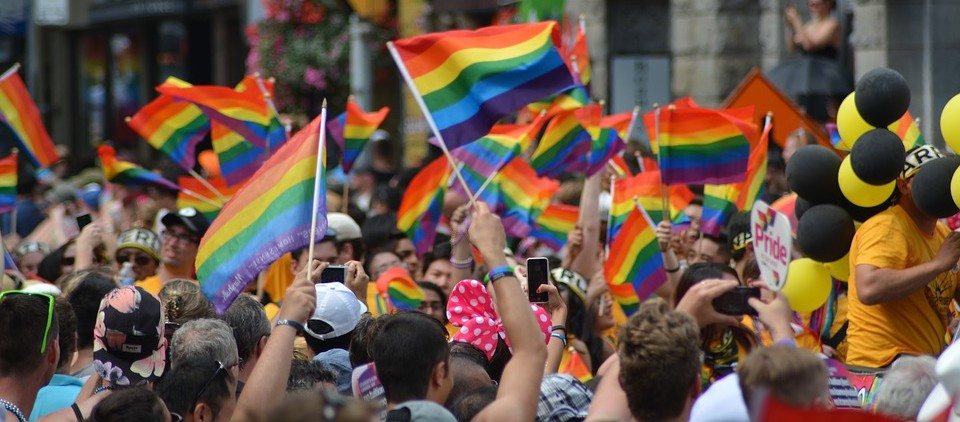(Gay) pride and prejudice: high school homophobia
As much as I detest gay stereotypes and think they are often reductive and offensive, I can’t deny that my flamboyance is something that probably comes to define me in many ways. Most people who know me personally would be putting it lightly if they described me as extroverted and a little bit camp. You know one of those people that you meet and you just instantly know they’re gay? Yep, I’m one of them.
Growing up, it became fairly obvious to those around me that my behaviour was a little bit queer (pun intended). I didn’t like football, I socialised more with girls, and my voice and behaviour had that “gay” vibe to it. Therefore, it wasn’t long before people, mainly at secondary school, would make remarks. I went to a comprehensive Catholic school in East London, and while many think of the capital city as being the hub of diversity and tolerance, this was definitely not the case where I grew up.
“Batty boy” was the go-to phrase to insult gay people, or failing that, people would say things like “nah man, he’s gay, that’s disgusting”…
Usually, I got along well with most people, and I would never describe myself as being bullied, but certain people would make nasty, homophobic remarks. “Batty boy” was the go-to phrase to insult gay people, or failing that, people would say things like “nah man, he’s gay, that’s disgusting”. I wasn’t even out at school, but naturally my palpable air of inherent “gay-ness” made me an occasional target.
Naturally, I became self-conscious. What can I do to seem less gay? Is there a way of speaking or walking that could fix my abnormal behaviour? I didn’t even know I liked boys at that age, but I feared people would hate me and not want to be around me if they even thought I was homosexual. It was the classic ‘if-I’m-friends-with-him-he-might-get-feelings-for-me-and-that’s-gross’ situation.
Even when I used my sense of humour to befriend the loud, boisterous kids, they would defend me against other homophobic remarks by saying “shut up, he’s not gay”…
And that was just the tip of the iceberg: I remember the one openly gay boy in my year being ostracised and constantly mocked. Also, as my school was quite rough, if you spoke up there was a major fear of being beaten up or stabbed. When we discovered that one boy was a secret cross-dresser, unsavoury comments were splashed across social media and the classroom rumour mill went into overdrive. “Don’t let this gay shit run in your school” and “this shit makes me sick, he’ll get shanked (stabbed)” were the ones I remember hearing the most. And although that boy was never attacked physically (that I know of), the panic was definitely real.
Even when I used my sense of humour to befriend the loud, boisterous kids, they would defend me against other homophobic remarks by saying “shut up, he’s not gay”. To them, they were standing up for me and I appreciated the sentiment, but it only reinforced my internalised idea that being gay was wrong and unnatural.
The same thoughts ran on a loop throughout my head: “Everyone will hate you, no boys will be your friends, you’ll probably be attacked, your life is ruined”…
When I realised that I may not be 100% straight, at around age 17, the thought terrified me. I didn’t admit the possibility even to myself. The same thoughts ran on a loop throughout my head: “Everyone will hate you, no boys will be your friends, you’ll probably be attacked, your life is ruined.”
It only occurred to me at university, when I met people that were more open-minded, that I could be myself. I could act and speak how I wanted without being excessively self-aware. However, at the back of my mind there was still that internal insecurity that made talking to men a difficult task. What if I’m making them uncomfortable with my presence? Do I tone down my behaviour?
I must admit that the anti-gay rhetoric I was exposed to throughout my early life still affects me to this day…
To this day, the vast majority of my friends are female, and the close straight male friends I do have can be counted on one hand. This isn’t because every heterosexual man in existence finds gay people disgusting, but because my own insecurity prevented me from making those friendships.
Don’t get me wrong, I won’t be crying myself to sleep over it; I’m vastly more comfortable in myself than I’ve ever been and attending a liberal university like Warwick has been a blessing. However, for someone who wouldn’t generally describe themselves as a victim of homophobia, I must admit that the anti-gay rhetoric I was exposed to throughout my early life still affects me to this day.

Comments